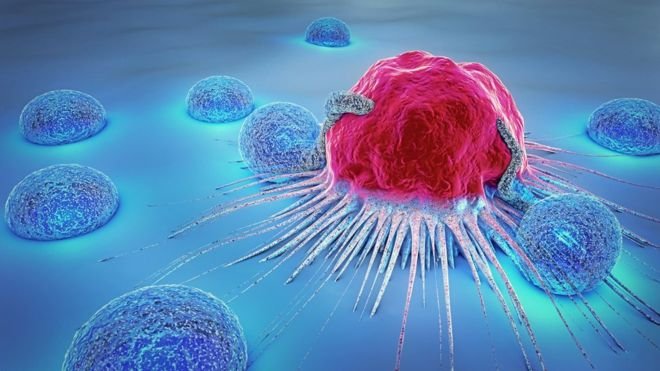Are you genetically predisposed to cancer?
January 31, 2019 | Thursday | Features | By Dr Sandeep Nayak
There is a very little knowledge on how you could be genetically predisposed to it and how you could reduce your risk, if there is high risk.
image credit- bbc.com
Cancer is becoming ubiquitous around the world. Every year 12.7 million people gets diagnosed to cancer and out of which only 7.6 million people survive. Although numerous initiatives and awareness campaigns are organized on a regular basis to educate people on the causes and symptoms of cancer, there is a very little knowledge on how you could be genetically predisposed to it and how you could reduce your risk, if there is high risk.
We all heard about the American actress, Angelina Jolie who underwent double mastectomy surgery after realizing she could be genetically predisposed to cancer because of her family history. Later, she even removed her ovary to prevent cancer.
What is cancer?
Cancer is not one disease; it’s a group of related diseases and the failure of apoptosis (natural cell death). Normally body cells grow and divide over a period of time until they eventually die. However, cancer cells continue to grow and divide, therefore the explosion of cells creates tumor in the body. As the cells divide in an uncontrolled manor, it spreads.
Tumors are lumps that can interfere with the body's normal processes. There are two types of tumors: Benign and Malignant tumors
Benign tumors are non-cancerous in nature and they are not life threatening unless they occur in any vital organ of the body. This type of tumor grow slowly and generally does not spread into other parts of the body. After getting removed by surgery, this tumor usually does not reoccur.
Malignant tumors are cancerous and life threatening in nature. They vary in shape and size and can grow abnormally in any part of the body and interferes with the body functions. Malignant tumors are lethal if not identified and treated early.
What is genetic predisposition?
A genetic disposition is how you are genetically vulnerable to something. You might be well aware of some hereditary health problems in your family which you blame it on the genes you share with them. Though these term, Hereditary and Genetic are closely inter-related still they are slightly different. Genetic disposition may cause diseases that are not heritable.
We inherit genes from both our parents. If a parent has a gene fault then each child has a 1 in 2 chance (50%) of inheriting it. So, some children will have the faulty gene and an increased risk of developing cancer and some children won’t.
If a person is born with an inherited faulty gene it doesn’t mean that the person will definitely get cancer, however, they will have a higher risk of developing particular types of cancer that existed in their family than other people. Also, they are more likely to diagnose to cancer at a younger age.
It is not necessary that people with inherited faulty genes are more vulnerable to cancer, most cancers also develop because of a combination of lifestyle and the environment, and Genetics specialists estimate that only about 2 or 3 in every 100 cancers diagnosed (2 to 3%) are linked to an inherited gene fault.
How to know if you are genetically predisposed to cancer?
There cannot be obvious reasons for getting diagnosed to cancer. However, genetic predisposition is one of the factors behind cancer diagnosis. Every human being has 19,000-20,000 protein coding genes, cancer develop when six or more gene faults found in a cell causing a mutation. Sometimes, one get cancer because of external factors which is not inherited called ‘Sporadic Cancer’.
Though it is not necessary that there should be cancer in your family to develop cancer, families with multiple cancer patients in the family are considered high risk families. The risk is especially high when the family members have developed cancer at an young age. These people should undergo genetic counselling and genetic testing.
Genetic Counselling and testing
Genetic counselling involves a trained counselor discuss with you and understand your risk by making a detailed family profile. Based on that analysis a blood test is performed check presence of the genetic tumor in your body. If there is a mutated gene the avenues to reduce the risk would be discussed with you.
Keeping it at bay
If you think you have belong to a high risk cancer family, do get your genetic test done. According to your results, you can opt for constant screening, medications or surgery. However, changes in your lifestyle can have positive impact as well. You having faulty gene is a chance but you letting it not affect you is of choice.
Dr Sandeep Nayak, Senior Consultant Surgical Oncologist, Laparoscopy & Robotic Onco Surgery, Fortis Hospital, Bengaluru










